Defense Min. spox: Ukraine uses staged videos to accuse Russia, there's no threat to civilian population
Russia’s defense ministry says the Ukrainian government uses staged videos to accuse Russian forces of conducting indiscriminate strikes against civilian targets, stressing that Moscow’s military operation in Ukraine poses no threat to civilian population.
In a statement on Thursday, the ministry’s chief spokesman Igor Konashenkov said that “the high-precision weapons of the Russian Armed Forces disable only military infrastructure, air defense facilities, military airfields, and aircraft of the Armed Forces of Ukraine.”
In a televised address early on Thursday, Russian President Vladimir Putin ordered “a special military operation” in Ukraine’s breakaway Donbass region to “defend people who for eight years are suffering persecution and genocide by the Kiev regime.”
Konashenkov’s comments came after Kiev alleged that missile strikes by Russian forces had also claimed the lives of civilians.
“We draw the attention of the media that the Security Service of Ukraine is preparing and is already implementing provocations according to the well-known patterns of the White Helmets,” he said.
He was referring to the West-backed White Helmets group, which is known for its coordination with terror outfits in Syria to carry out staged chemical attacks in order to falsely incriminate Syrian government forces and fabricate pretexts for military strikes by a US-led military coalition present in Syria since 2014.
“In Ukrainian cities, staged video filming was made with so called ‘mass casualties’ among the civilian population of Ukraine. Prepared videos are distributed through controlled telegram channels and social networks,” Konashenkov said, adding, “Their goal is to accuse Russia of supposedly non-selectivity and disproportionate strikes to intimidate the civilian population and broadcast on Western TV channels.”
"The Russian Armed Forces do not strike at the cities of Ukraine... Nothing threatens the civilian population,” the spokesman added.
In 2014, Ukraine’s two regions of Donetsk and Lugansk – collectively known as the Donbass – were turned into self-proclaimed republics by ethnic Russians, leading to a bloody conflict between the government forces and armed separatists.
The conflict worsened following a wave of protests in Ukraine that led to the overthrow of a pro-Russia government, which was later replaced with a Western-backed administration. The majority in those areas refused to endorse the new administration. More than 14,000 people have been killed so far.
Ukraine, as well as the European Union (EU) and the United States, claim that Russia has a hand in the conflict in the Donbass. Moscow denies the allegation.
Russia and the US-led NATO have long been at odds over Ukraine. Moscow views NATO’s eastward expansion as a direct threat to its security. Recently, it had put forward a set of security proposals to de-escalate the tensions, including a guarantee that Ukraine would not join NATO, a demand that the alliance said was a non-starter.
Russia says destroys over 70 military targets in Ukraine
Also on Thursday, Russia announced that its military had destroyed more than 70 military targets including 11 airfields in Ukraine, AFP reported.
"As a result of strikes carried out by the Russian armed forces, 74 Ukrainian military ground facilities were destroyed," said Igor Konashenkov, a Defense Ministry spokesman, specifying that destroyed facilities included 11 airfields.
The Russian official added that a Ukrainian military helicopter and four drones were also shot down.
G7 leaders: Putin has put himself on wrong side of history
The Group of Seven industrialized nations on Thursday strongly condemned Russia's operation in Ukraine, saying that they would impose severe and coordinated economic and financial sanctions against Moscow.
"This crisis is a serious threat to the rules-based international order, with ramifications well beyond Europe," the G7 leaders said in a joint statement.
Adding that Russian President Vladimir Putin has re-introduced war to the European continent, the G7 statement read, "He has put himself on the wrong side of history."
The G7 leaders also said they support consistent and constructive engagement and coordination among major energy producers and consumers to make sure about stable global energy supplies and are ready to act to address potential disruption.
NATO says has no troops in Ukraine
Meanwhile, NATO on Thursday said the military alliance has no combat forces in Ukraine and no plans either to send troops to the crisis-hit country.
“There are no NATO combat troops, no NATO troops at all inside Ukraine. We have made it clear that we don't have any plans and intention of deploying NATO troops to Ukraine,” said NATO’s Secretary-General Jens Stoltenberg at a news conference on the situation in Ukraine.
“What we have made clear is that we have already increased and we are increasing the presence of NATO troops in the eastern part of the alliance on NATO territory,” he said, stressing that it has no plans to deploy NATO forces to Ukraine.
“What we do is defensive,” Stoltenberg added, announcing that NATO would put more than 100 warplanes on high alert as part of what he called new “deterrence and defense” steps against Russia.
He also said there would be a virtual emergency summit of NATO’s 30 member states on Friday, noting that they would be joined by the leaders of Sweden, Finland and institutions of the European Union.
The military alliance plans to implement new measures that would enable it to deploy capabilities and forces, including the NATO Response Force, to eastern European countries.
According to Slovak Foreign Minister Ivan Korcok, NATO is planning to establish battle group structures like those it already has in Baltic states for the countries on its eastern flank. He added that the plan would also include Slovakia.
“The unit will be made from countries that are geographically close to us. It will be about several hundred soldiers who will come with equipment that we don't have and which will significantly increase our ability to defend our country,” said Slovak Defense Minister Jaroslav Nad.
In an earlier statement, NATO had said that it had decided “to take additional steps to further strengthen deterrence and defense across the alliance”, but its measures were “preventive, proportionate and non-escalatory.”
China refuses to call Russian operation 'invasion'
Also on Thursday, Chinese Foreign Ministry spokeswoman Hua Chunying bridled at journalists' characterization of Russia's operation in Ukraine and rejected calling the move as “an invasion.”
“This is perhaps a difference between China and you Westerners. We won't go rushing to a conclusion,” she said in response to a journalist who described the Russian operation as an invasion during a packed daily press conference in Beijing.
“Regarding the definition of an invasion, I think we should go back to how to view the current situation in Ukraine. The Ukrainian issue has other very complicated historical background that has continued to today. It may not be what everyone wants to see,” Hua said.
She also said Beijing “is closely monitoring” what is going on in Ukraine, urging all sides involved to exercise restraint.
“We call on all sides to exercise restraint to prevent the situation from getting out of control,” Hua added.
Earlier, China’s Embassy in Ukraine told Chinese nationals in the crisis-hit country to stay at home or at least take the precaution of displaying a Chinese flag on their cars if they needed to go anywhere.
Later in the day, Chinese Foreign Minister Wang Yi held a phone conversation with his Russian counterpart Sergei Lavrov, saying Beijing understood Moscow’s “reasonable concerns on security issues” over Ukraine.
Although Beijing “has always respected the sovereignty and territorial integrity of all countries… we have also seen that the Ukrainian issue has its own complicated and unique history,” the Chinese foreign minister added.
Wang did not mention NATO by name but told Lavrov that China advocates a “balanced” and sustainable European security mechanism to be achieved through dialog and negotiation.
British PM vows massive sanctions to "hobble" Russian economy
British Prime Minister Boris Johnson, however, said his country and its allies would unleash what he called a massive package of economic sanctions to hobble the Russian economy.
"Today, in concert with our allies, we will agree a massive package of economic sanctions designed in time to hobble the Russian economy,” Johnson said in a televised address to the nation, stressing that the West must end its reliance on Russian oil and gas.
"Our mission is clear: diplomatically, politically, economically, and eventually military, this hideous and barbaric venture of Vladimir Putin must end in failure,” the British premier added.
Earlier on Thursday, Johnson lambasted the Russian operation as a "catastrophe" for Europe.
British Foreign minister Liz Truss also said that she had summoned the Russian ambassador to London to explain Moscow's actions in Ukraine.
Lithuania declares state of emergency
In a related development, Lithuanian President Gitanas Nauseda declared a state of emergency on Thursday, calling on his country’s army to deploy along its borders in response to “possible disturbances and provocations due to large military forces massed in Russia and Belarus.”
The state of emergency in Lithuania, which is a NATO member state, was declared hours after Russian forces began their military operation in Ukraine. The measure will be valid for two weeks.
Lithuania borders Belarus and Russia’s enclave of Kaliningrad. The country’s parliament was to meet later on Thursday to vote whether to confirm or cancel Nauseda’s decision.
mayor of Ukraine capital declares curfew
Later on Thursday, the mayor of Ukraine's capital of Kiev ordered a curfew in comments shown on television after Russia launched an invasion of Ukraine. The curfew will be from 10 p.m. till 7 a.m.
This came after Ukrainian military chief, Valerii Zaluzhnyi, said Thursday afternoon that the country's troops were fighting the Russian army in in the north and the south.
Zaluzhnyi said a battle was raging near the Hostomel air base 7 kilometers (fewer than 5 miles) northwest of the capital, Kiev, adding that in the south, fighting was going on near Henichesk, Skadovsk and Chaplynka.
Ukrainian police on Thursday said Russia had carried out 203 attacks since the beginning of the day, with fighting going on almost everywhere throughout Ukraine’s territory.
State border guards said the Ukrainian military was fighting Russian forces near the eastern city of Sumy.
Ukrainian military authorities also said 20 Russian helicopters and mi-8 aircraft dispatched paratroopers at Hostomel airport in Kiev region.
ICRC: Civilians, infrastructure must be spared from attacks in Ukraine
The International Committee of the Red Cross (ICRC) said on Thursday that civilians and critical infrastructure such as water and power systems in Ukraine must be protected from attacks in line with the rules of war.
In a statement issued after the beginning of Russia-Ukraine conflict, ICRC President Peter Maurer said, "The use of weapons with wide area effects should be avoided in populated areas.”
"Essential infrastructure must be spared, including water, gas and electrical systems that, for instance, provide civilian homes, schools and medical facilities with vital water and electricity supplies. Attacks carried out with new technologies and cyber means must also respect international humanitarian law," he added.
Security permitting, ICRC teams would continue to repair vital infrastructure, supply health facilities with medicines and equipment, and families with food and other items, the ICRC head said.
From Iraq to Gaza: The great disconnect between British people and rulers
Syria condemns Israel's killing of 36 in 'horrific' strike on Palmyra
Iran rejects UN human rights resolution as politically-motivated, unjustified
US Senate rejects bids to halt military sales to Israel
US veto of Gaza resolution 'license' for more Israeli crimes: Tehran
Iran urges IAEA Governors Board to oppose E3’s anti-Iran resolution
Nov. 20: ‘Axis of Resistance’ operations against Israeli occupation
VIDEO | Iran celebrates National Hero Day, honoring Martyr Qassem Soleimani


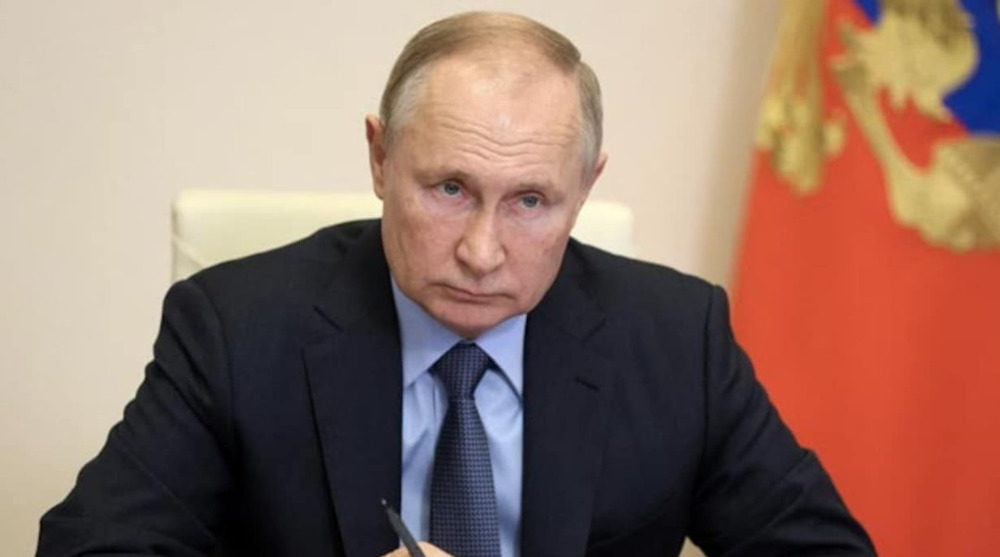
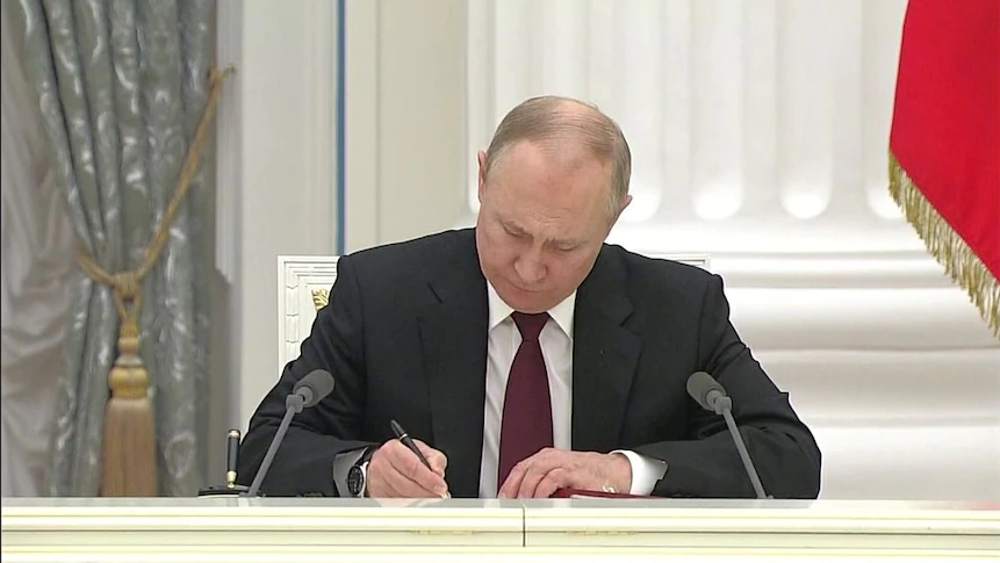
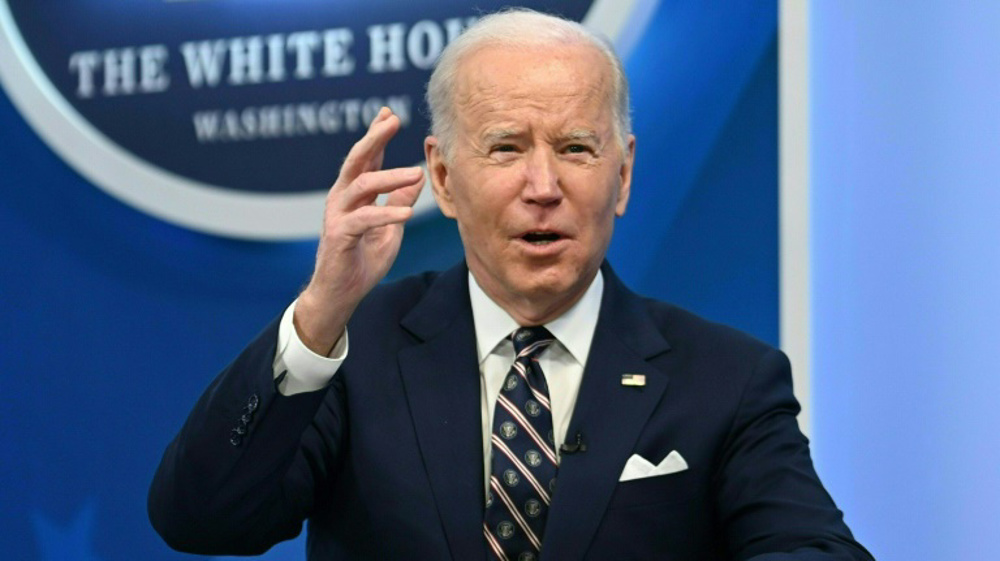
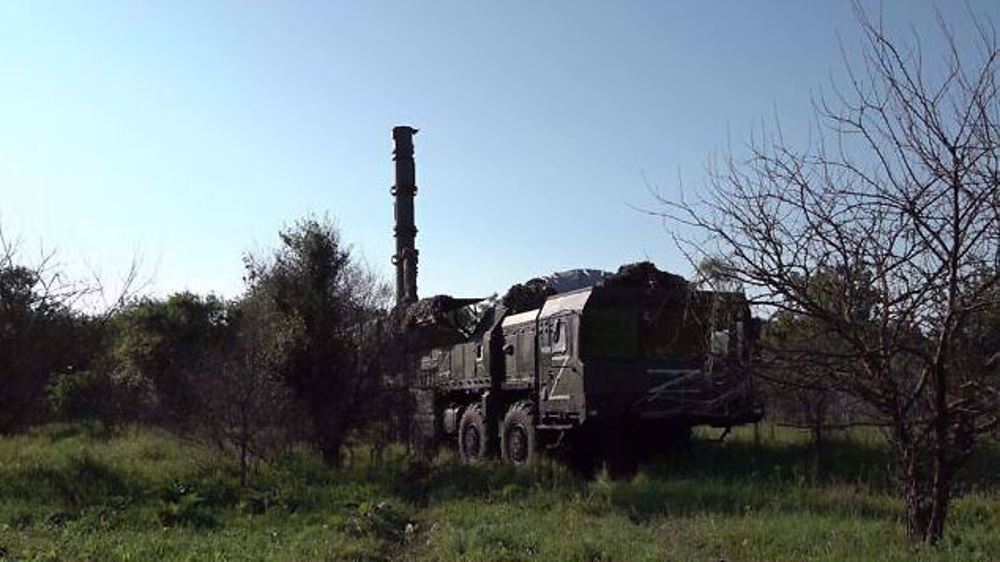
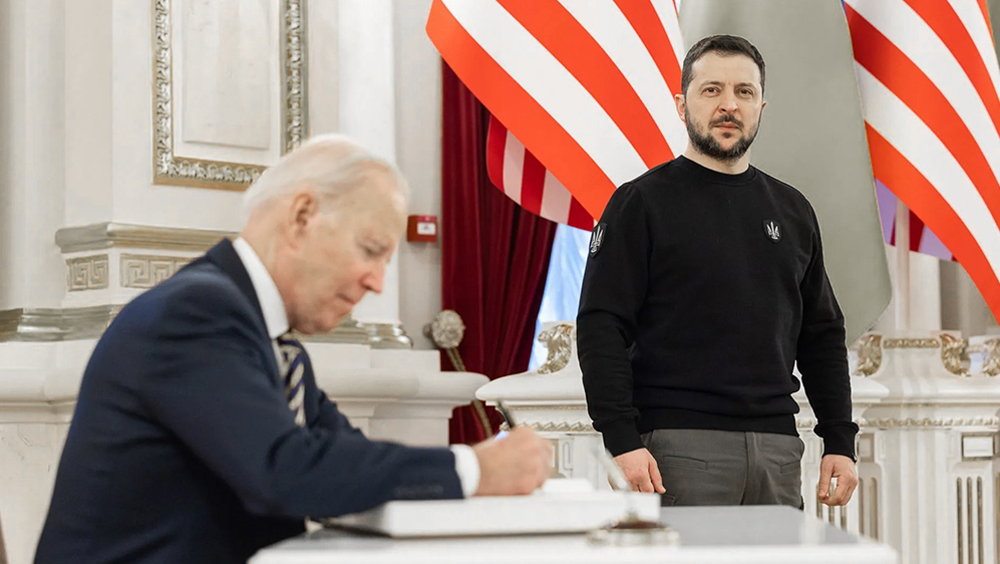
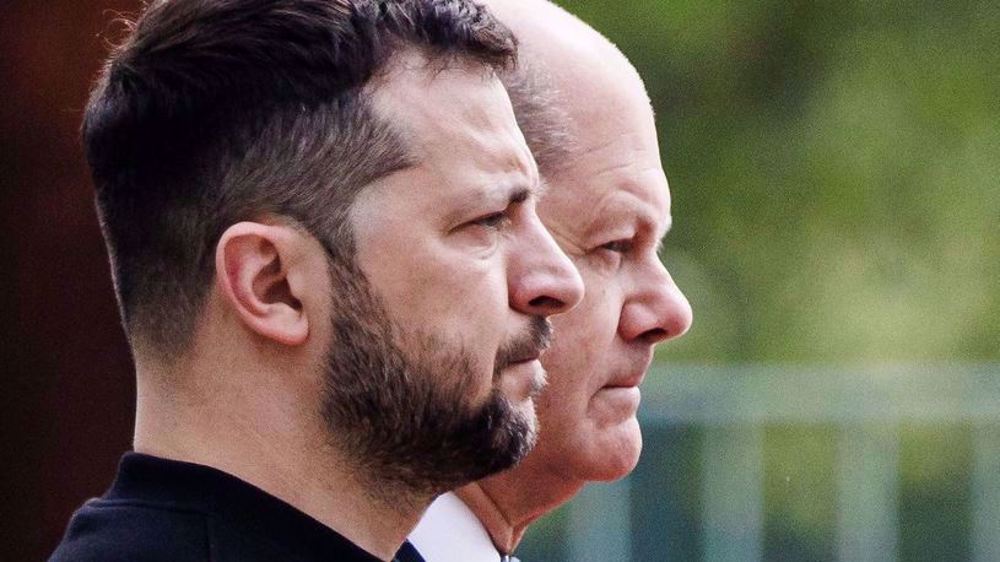




 This makes it easy to access the Press TV website
This makes it easy to access the Press TV website